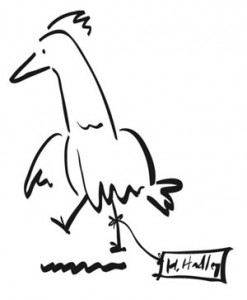Marvin Plotnik and the Sandy Rivers Hilltop Ranch
for Wayward Youth, Juveniles, and Young Adults
…
A Completely Avoidable Introduction…
…in Which We Thumb Our Noses
at Literary Convention,
Tell More Than Show,
Delve Into Our Young Hero’s Formative Years,
and Have a Nice Piece of Cake
MARVIN PLOTNIK was one smart-ass kid. If his mother were to ask, “Has anyone seen the peanut butter?” Marvin might look up from his bowl of Nut Crunchies and answer something along the lines of, “If you must know, I’m holding it between my buttocks,” or, “Perhaps it was purloined by a band of toast fiends,” or simply, “Have you looked under ‘P’?”
His mother would then say something along the lines of, “How in the world did I raise such a smart-ass kid?” or “Sheesh.”
If Marvin were to pull this kind of thing on his father, his father would do something very typical of fathers: he would roll his eyes, slowly shake his head, and leave the room.
Now up until the time Marvin was in the ninth grade — when he was carted off in a rickety old bus bound for Something He Never in a Million Years Would Have Imagined (and where we shall join him in the exciting plot-driven world of Chapter One) — he was expected to abide by the conventions of a rather uneventful public education. Key word: expected.
If we were to begin with first grade, for instance (as of course young Marvin did), we’d find on the first day of school his teacher taping pictures from a nature magazine on the board. The first picture was of a snow leopard, which is not a leopard made of snow but is a leopard that lives much of its life in snow. The second picture was of a blue-footed booby, which is not a booby in the hot-chick-in-a-bikini sense, but is a specific kind of bird found on the Galapagos Islands whose wide webbed feet are a striking shade of blue. (Seriously. Look it up.) The third picture on the board was of a chimpanzee dressed in a dashing red fez, which is a tasseled hat worn by funny old men called “Shriners” who like to ride around in teensy-weensy cars in municipal parades.
Pointing to the board, the teacher asked, “What do these three things have in common?” Almost all the first-graders raised their hands. “They’re animals,” one boy said. “They all have babies,” one girl suggested. “They all have eyes,” said another. It was only after Marvin came up with, “They all have tasty caramel centers” — after pointing out there were actually four items on the board, if you included the fez — that this particular teacher knew the boy with the oversized glasses was going to be trouble.
In second grade, during a video called A Journey Through Time, Marvin took one look at the rudimentary cave drawings of Early Man and blurted out, “How do we know the animals back then didn’t really look like that?”
A lesson on Christopher Columbus in third grade prompted him to straighten his glasses and inquire, “How much would a trip like that cost today, adjusting for inflation?”
Fast-forward to middle school, where Marvin’s sixth-grade math teacher posed the question, “What is the circumference of a circle with a diameter of four inches?” Naturally, Marvin had no trouble with the answer. The problem was that not only did he say, “12.56” (by multiplying 4 by 3.14, which as you know is the way to calculate circumference), but he felt compelled to add, “provided you are going clock-wise.”
You get the idea. It wasn’t that Marvin was trying to be contrary — he simply had a hard time controlling himself.
Speaking of which, this is as good a point as any to bring up the fact that Marvin Plotnik and your devoted narrator have much in common. We are made, as they say, of the same stuff. I do not mean this literally, although, if one were to analyze our internal chemistry, the combined components of which could en toto be traced all the way back to the Big Bang, one might be able to make that argument. No, what I mean is that your devoted narrator also has a hard time controlling himself. No doubt you’ve already noticed my somewhat unconventional habit of interjecting tangential (and sometimes parenthetical) remarks. So far you’ve witnessed only slight asides, but I’m taking this opportunity, from the get-go, to warn you: it gets worse.
Of course, this depends on what one means by “worse,” but please assume by this I mean “at the most inopportune moments” — like, for instance, this one. Just when you are riding merrily along, sucking in a refreshing lungful of captivating prose, enjoying the scenery, I just might poke an overly digressive nose in the door with a tidbit of Tremendously Impressive Information and, on occasion, How it Fits Within the Fabric of the Universe. I’ll even throw in the initial caps.
You’ll be glad to know that most of the time my nose-poking (that’s nose poking, not nose picking) will be confined to the bottom of the page, but sometimes, I concede, it won’t.[i]
These asides are known in the trade as “experto crede” [ex-PARE-toe CRAY-duh]which is Latin for “trust in the expert,” or “believe one who has had experience,” or, more to the point, “your devoted narrator knows what he is talking about so please do not write his publisher disapproving letters. They hate that.” Which means, dear reader: I am not, as a Great Literary Figure once said, making this stuff up.
I do not do this to cause you trouble. I do this because, like our illustrious hero Marvin Plotnik, it is in my nature. (You’ve heard of recessive genes? Think of these as digressive genes.) Because where I come from — not Glorfyndrak — not only do we interrupt ourselves, we interrupt our interruptions. Sometimes we even interrupt our interruptions of our interruptions. Sometimes we do it because we must, and sometimes we do it just to “pass the time” (which, you will discover some two-hundred-plus pages hence, is a very amusing phrase).
Mostly, though, we do it because where I come from, we understand the Nature of the Universe, and by this I mean the Interconnectness of All Things, and by this I mean, “If you don’t pay attention, you’re going to be missing something,” i.e., even the tiniest fact might come in handy later on. (I know, because I personally wrote down what happens later on.) Meaning I did not go to this effort without fully intending each word count, including that one on page 215 that gave my editor such a hissy fit. I mean, really.
Anyway, I do apologize. I know you people aren’t used to this sort of thing.[ii]
[i]> Allow me to point out that on the planet Glorfyndrak — some 22.23 light-years away — books not only have footnotes, but footnotes serve as the primary text. So when I say “unconventional habit,” I mean of course “by Earth standards.” Not that I’m from the planet Glorfyndrak; God forbid. But if a book on Glorfyndrak were to include anecdotal notations about one-armed acrobats, President Richard Nixon’s faux pas on the island of Mua‘ago Pago, Serubian Bog Oil, Space-time Connibulators, heroic Bhutanese monks, the Great Wall of China, Shakespeare, Spanish Conquistadors, and the true makeup of the rings of Saturn — as this one does — such a book would be the norm. On Earth, not so much.
Why, you may ask, is that? I, I might answer, have absolutely no idea.
It’s your planet — you tell me.
[ii]> Look, if it’s just too much trouble to move your eyes south a few measly lines — or tap a lousy little number on a screen — go ahead, close the book, crack open some Cheese Doodles, boot up an RPG and pretend you’re lost in Medieval Japan. Argue online with a complete stranger about who’s the bigger dick-wad. Spend all your Swordcraft gold on virtual loot. Update your MyFace page. Post some videos of your dog’s rear-end and how it looks like it’s talking when the poor thing has hiccups (the dog, not the rear-end). See how many marshmallows you can cram in your mouth. Watch “Spongedude.” Whatever.
For the rest of you, I suggest you do what you’ve already done, evidenced by the fact you’re reading this sentence, which is to join me in my tiny-type digressions and celebrate the Magic of the Literary Footnote. Then later we can all meet at Denny’s, make fun of the chowder-heads who bailed, and have a nice piece of cake.
Oh, one more thing: There will be — and I’m not kidding about this — a test at the end.
Spelling counts.
—
All content © D. S. Thornton






